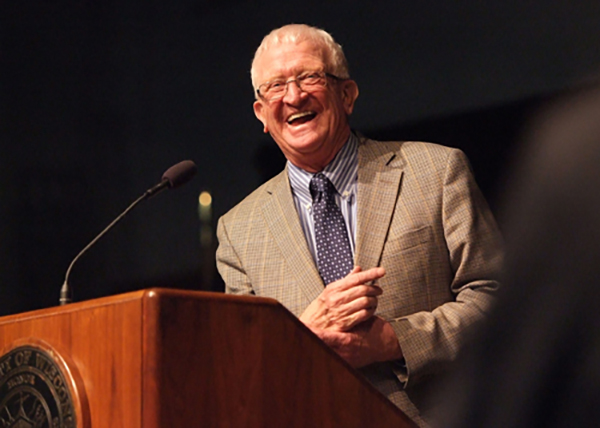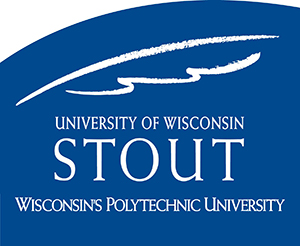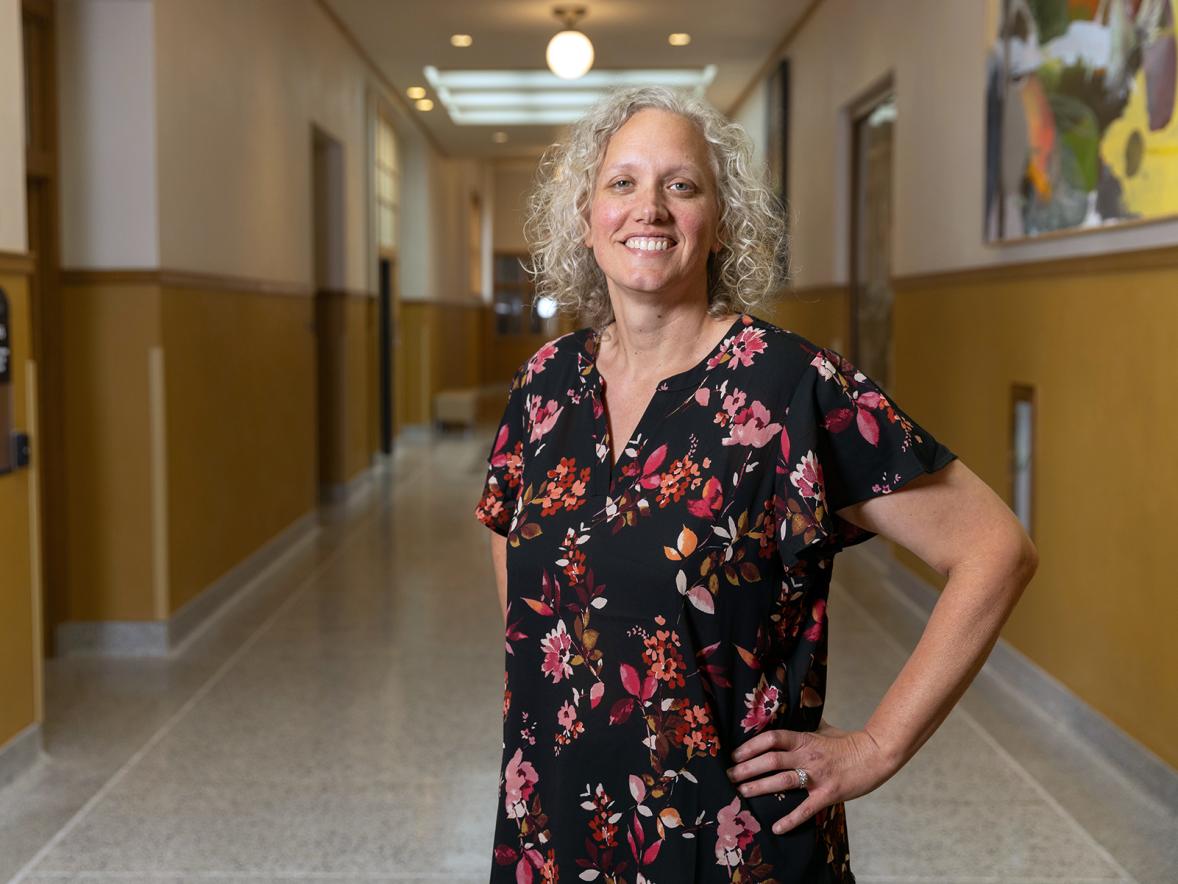How did a regional state university in west-central Wisconsin, established way back in 1891, decide to brand itself as a polytechnic university?
The answer to that question begins with the late Chancellor Emeritus Charles W. Sorensen, who believed that UW-Stout needed to find a way to stand out among its peers in the large UW System, which is comprised of 13 four-year institutions, including the flagship R-1 UW-Madison.
This is how Sorensen described his feelings when addressing the first Polytechnic Summit held at UW-Stout in 2009.
 “UW-Stout decided to join the polytechnic family because we knew we had to change,” Sorensen said in his opening address. “We felt we had lost our competitive advantage in the Upper Midwest, and we needed to brand ourselves differently, to market ourselves aggressively and, most importantly, to build on our rich history and yet transform ourselves.”
“UW-Stout decided to join the polytechnic family because we knew we had to change,” Sorensen said in his opening address. “We felt we had lost our competitive advantage in the Upper Midwest, and we needed to brand ourselves differently, to market ourselves aggressively and, most importantly, to build on our rich history and yet transform ourselves.”
The UW System Board of Regents granted UW-Stout the designation as Wisconsin’s Polytechnic University in March 2007, but the effort to seek that designation began at least five years before and grew out of the Polytechnic Concept Steering Committee. Members of the committee represented the academic colleges, School of Education, Student Services, Stout Student Association, Faculty Senate and Senate of Academic Staff.
The committee determined that UW-Stout shared enough characteristics with existing polytechnic universities to seek an official designation from the Board of Regents. After governance groups on campus agreed in 2006, Sorensen submitted the formal request to the Regents.
 However, it could be argued that James Huff Stout, who opened the manual training school in 1891 that would become UW-Stout, really had a polytechnic university in mind from the outset. Stout contended that “the best education equips a young person for practical life work, fits them to earn a living and contribute to the demands of society, and gives them the greatest usefulness and encourages the highest and best citizenship.”
However, it could be argued that James Huff Stout, who opened the manual training school in 1891 that would become UW-Stout, really had a polytechnic university in mind from the outset. Stout contended that “the best education equips a young person for practical life work, fits them to earn a living and contribute to the demands of society, and gives them the greatest usefulness and encourages the highest and best citizenship.”
That philosophy was carried over into the campus effort to define for itself what it meant to be a polytechnic university. The result of that effort was the adoption of the polytechnic tenets:
- Career focus: A polytechnic offers a comprehensive curriculum that prepares graduates for professional careers.
- Applied learning: A polytechnic blends theory with practice to produce innovative solutions to real world problems.
- Collaboration: A polytechnic works closely with business, industry and other educational institutions to benefit students and grow the economy.
Today, 12 years after UW-Stout was designated Wisconsin’s Polytechnic University, those three tenets, along with an accompanying blend of liberal arts, have become a vital part of the institution’s DNA and appear frequently in the university’s marketing materials. The mission statement of UW-Stout also was changed to incorporate the terms polytechnic university, career-focused and applied learning.
While James Huff Stout might not have given UW-Stout the polytechnic name when he opened his school in 1891, he certainly would approve of how his manual training philosophy is being carried on today at Wisconsin’s Polytechnic University.
Sorensen retired in 2014 as the longest-serving chancellor in UW-Stout history. He passed away in February of 2018 at age 77.
###
Photo
Charles W. Sorensen, former UW-Stout chancellor






